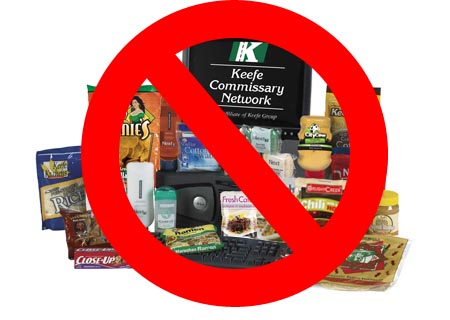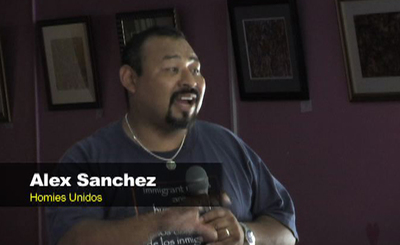 The
recent election in Iran has become a phenomenon given unusual attention
by amerikans who read the news. One must ask why these amerikans are so
upset about potential election fraud on the other side of the world? You
didn’t hear such concern about the recent Mexican election. In that case
it was a country bordering the united $tates, and there was actually
evidence of widespread fraud. With the treatment of an incident last
week where the Honduran president was abducted and flown out of the
country in a coup, it is even more evident that the media and its
followers are more upset about the fact that their candidate didn’t win
then that there was any unfairness involved.
The
recent election in Iran has become a phenomenon given unusual attention
by amerikans who read the news. One must ask why these amerikans are so
upset about potential election fraud on the other side of the world? You
didn’t hear such concern about the recent Mexican election. In that case
it was a country bordering the united $tates, and there was actually
evidence of widespread fraud. With the treatment of an incident last
week where the Honduran president was abducted and flown out of the
country in a coup, it is even more evident that the media and its
followers are more upset about the fact that their candidate didn’t win
then that there was any unfairness involved.
The Iranian election warrants particular attention from the Maoist
movement because of the campaign against Iran, and the Muslim world in
general, that has been carried out by Amerikan imperialism as well as
groups calling themselves feminists, and some even calling themselves
Maoists. While years of struggle have occurred against these allies of
imperialism, many of our readers behind bars will be new to this.
For years now, the so-called “Revolutionary Communist Party (USA)” has
been organizing mass demonstrations in cities across the country on
International Wimmin’s Day, targeting Iran. At one rally, this writer
witnessed middle-aged men in business casual attire carrying massive
banners calling for the overthrow of the Islamic Republic of Iran. When
asked what group they organized with they claimed to just be a couple
guys concerned about the issue. The main topic of the rally was wimmin’s
rights.
As one Maoist writer pointed out, the Jerusalem Post (6/23/2009)
printed an article entitled, “It’s about the women” in response to the
post-election protests in Iran, which stated:
“Women are the ones arrested in Iran for having an ankle showing or for
wearing lipstick. After three such arrests, women go to prison. At the
fourth arrest, they get a public lashing.”
The author correctly comments,
No doubt some Iranian wimmin are indeed afraid of their own Muslim
culture. Yet there is no proof that the portion of Iranian wimmin so
afraid is higher than the portion of Amerikan wimmin afraid of sexual
harassment on the street if they show ankle or wear obvious lipstick.
There is also no doubt that large portions of wimmin in both Iran and
the united $tates are completely comfortable with the culture they
display when walking down the street.(1)
In other words, this is not about wimmin’s rights, as much as many try
to pretend it is. If it was they would be attacking patriarchy not
oppressed nations whose leaders don’t succumb to u$ economic interests.
Our readers should know that millions of dollars were sent to
anti-government organizations in Iran in the last few years by the U.S.
State Department(2), while Seymour Hersh reported that U.S. special
operations forces were conducting exercises inside Iran’s borders. One
can see why the u$-backed candidate, Mir Hossein Mousavi, might have
expected to win the recent presidential election. But a number of polls
showed high approval rates of President Mahmoud Ahmadinejad, and showed
him winning the election by a similar margin. While anti-Ahmadinejad
activists got support from corporations like Facebook and Twitter and
their users to get their opinions out, 65% of Iranians don’t have access
to the internet(4), which likely overlaps greatly with the rural
majority who reportedly voted for Ahmadinejad.
In one online discussion of the Iranian elections an apparent
anti-imperialist commented, “It’s interesting that some “Western
progressives” here are essentially accepting the Western media and
government propaganda spin on the Iranian elections–the same Western
media and governments they supposedly oppose.”(3) It is interesting, in
that it exposes the common interests between amerikans and the corporate
elite when it comes to issues most important to imperialism.
However, we should not ignore a couple of things that made this
embracing of the corporate line a bit smoother. First, many supposedly
independent organs have been rallying amerikans against the Islamic
Republic of Iran for years. Second you have supposedly independent
activists on Twitter reporting from Iran. For amerikans, the individual
is the ideal unit for change, far superior to a self-proclaimed
revolutionary organization or a corporate news source. Amerikans trust
individuals more, even when there is no accountability of who these
individuals are. So when CNN says that the elections in Iran were
rigged, there is corroborating evidence from “alternative” sources to
let one believe it.
Will amerikans support People’s War when the proletariat uses Twitter?
The obvious answer is no. Twitter serves a certain class with certain
interests. The world’s exploited majority are not well-represented on
the internet. Amerikan liberals would like to think that their little
gadgets, paid for with the blood and sweat of the Third World, are
increasing democracy and humyn rights. It is only at the fringes that
the proletariat is making use of these tools that are still in the hands
of the rich. (Rather than a Twitter Revolution, one starts to wonder if
this is just one big Twitter advertisement.)
Those who acknowledge that Mousavi does not represent the progressive
demands of the masses of Iran are countering that those in the street
are who they are supporting. One commentator pointed out:
“Just being in the streets does not make a protester revolutionary. Just
as putting down such protests, in itself, does not make one a
reactionary. Fascists have had street protests. And, communists have
broken up street protests.”
It is the most radical of the petty bourgeoisie who fall into this trap
of seeing all rebellion as good without considering the greater context
or the outcome. These individualists idealize “spontaneous” uprisings,
even when they’re backed by millions of dollars of u$ funding and years
of psychological warfare by the CIA-run media.
As many of the better commentaries have pointed out, this “Green
Revolution” being touted in the corporate media is the latest in a long
line of “revolutions” that are backed by the the imperialists to replace
the governments of mostly former-Eastern Bloc countries with leaders
favoring Washington-centered neo-liberalism. While they have all
received great praise in the media, none has received such mass response
from amerikans in general as Iran. The key difference has been the Islam
factor, and the use of gender aristocracy attacks on Iran from a range
of amerikans, including the u$ State Department, pseudo-feminist
organizations, and phoney Maoist parties.
Gender issues have been used by colonialists and imperialists to attack
Islam (ie. the oppressed nations) throughout the last century. There is
no reason to believe that such attacks are suddenly progressive.
Amerikans are being rallied around “barbaric” incidents in the Muslim
world, while ignoring the fact that u$ imperialism is still the number
one
imprisoner,
torturer and killer in the
world. No one else comes close.
notes:
(1)
http://mimdown.wordpress.com/2009/06/27/media-standards-for-u-and-iranian-elections/
(2)
One request was for $400 million dollars according to Seymour Hersh.
Recently, it was reported that U.S. Congress apparently approved $66
million of
it.
http://www.usatoday.com/news/washington/2009-06-25-iran-money_N.htm
(3)
http://monkeysmashesheaven.wordpress.com/2009/06/15/ahmadinejad-accuses-west-of-waging-psychological-warfare-against-iran/#comments
(4)
Schleifer, Yigal. Why Iran’s Twitter revolution is unique. Christian
Science Monitor, June 19, 2009.









 We
are bring to the attention of the masses in the gulags and amongst the
populace the corporate monopoly of the Keefe Food Group over Corrections
Institutions in North Amerikkka. The Keefe Group is a subsidiary of the
Centric Group LLC. It appears that this conglomerate has exclusive
lucrative contracts throughout county, state and federal systems.
We
are bring to the attention of the masses in the gulags and amongst the
populace the corporate monopoly of the Keefe Food Group over Corrections
Institutions in North Amerikkka. The Keefe Group is a subsidiary of the
Centric Group LLC. It appears that this conglomerate has exclusive
lucrative contracts throughout county, state and federal systems.

 The
recent election in Iran has become a phenomenon given unusual attention
by amerikans who read the news. One must ask why these amerikans are so
upset about potential election fraud on the other side of the world? You
didn’t hear such concern about the recent Mexican election. In that case
it was a country bordering the united $tates, and there was actually
evidence of widespread fraud. With the treatment of an incident last
week where the Honduran president was abducted and flown out of the
country in a coup, it is even more evident that the media and its
followers are more upset about the fact that their candidate didn’t win
then that there was any unfairness involved.
The
recent election in Iran has become a phenomenon given unusual attention
by amerikans who read the news. One must ask why these amerikans are so
upset about potential election fraud on the other side of the world? You
didn’t hear such concern about the recent Mexican election. In that case
it was a country bordering the united $tates, and there was actually
evidence of widespread fraud. With the treatment of an incident last
week where the Honduran president was abducted and flown out of the
country in a coup, it is even more evident that the media and its
followers are more upset about the fact that their candidate didn’t win
then that there was any unfairness involved.